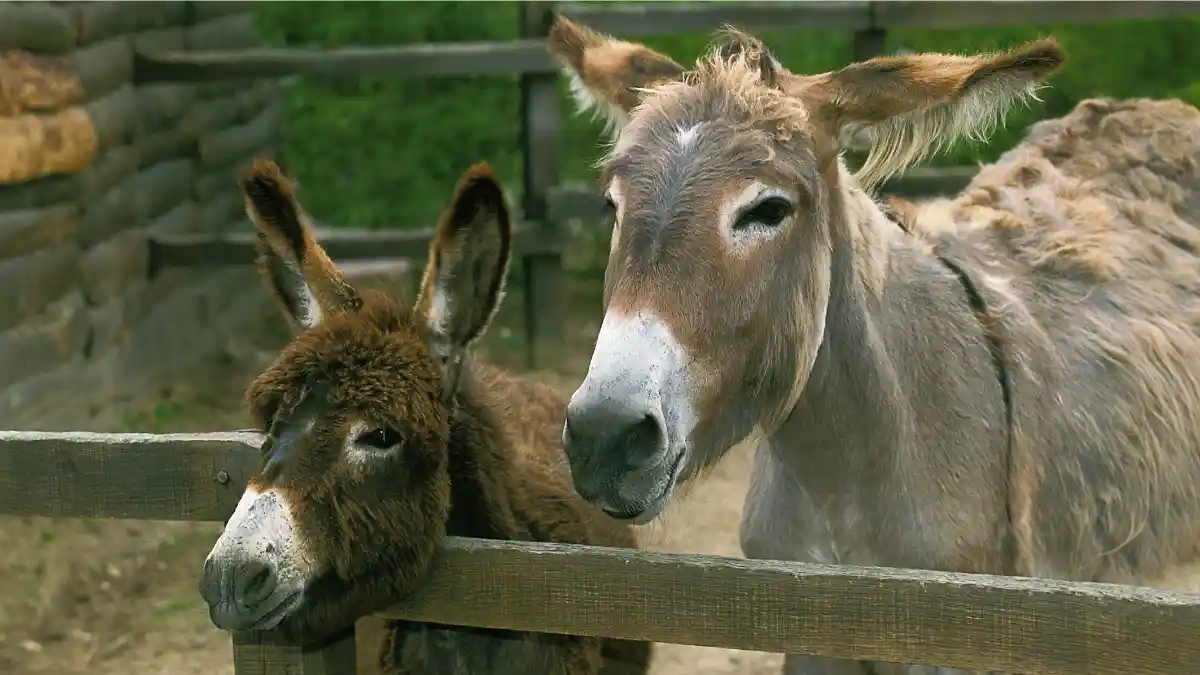Donkey milk is not your ordinary milk; it’s one of the priciest. Ever wondered why? Well, it’s not just random. There are specific reasons that make donkey milk stand out and cost more. From challenges in making it to the fancy nutritional stuff it has, everything plays a role. So, let’s explore why donkey milk is on the expensive side.
We’ll dig into how limited production and the tricky milking process make it a rare find. The rich nutrients in donkey milk make it extra special, justifying its higher price tag. And hey, there’s more – the cultural value, the unique farms, and even the ethical care for the donkeys. It’s a mix of all these things that makes donkey milk not just rare but also a bit fancy and expensive.
Ready to uncover the secrets behind its high price? Let’s dive in!
Table of contents
Limited Production
Donkeys, in comparison to more common dairy animals like cows, goats, or sheep, produce a significantly lower volume of milk. This inherent scarcity plays a pivotal role in driving up the cost of donkey milk. As its availability is limited, the market demand for this unique milk intensifies, resulting in elevated prices.
Difficulties in Milking
Milking donkeys presents specific challenges not encountered with more conventional dairy animals. Donkeys, known for their sensitivity and prone to stress, face difficulties during the milking process, directly affecting milk production. The smaller teats of donkeys further complicate the milking process, making it more labor-intensive and time-consuming.
High Nutritional Value
Renowned for its nutritional richness, donkey milk boasts abundant proteins, vitamins, and minerals. This exceptional nutritional profile not only contributes to its perceived value but also justifies the premium price associated with its consumption. Consumers are willing to pay more for a product that offers enhanced nutritional benefits of donkey milk.
Cultural and Historical Significance
Donkey milk holds historical and cultural significance in certain cultures, adding a layer of demand that can significantly impact prices. The uniqueness and historical relevance of donkey milk contribute to its status as a sought-after and expensive product, with consumers valuing its cultural ties and heritage.
Specialised Farms
Donkey milk production is often associated with specialised farms dedicated exclusively to raising and milking donkeys. The infrastructure and expertise required for such focused farming practices contribute to increased production costs. These specialised farms, with their unique set-up, play a crucial role in determining the market price of donkey milk.

Health and Cosmetic Uses
The health and cosmetic industries have recognised the potential benefits of donkey milk, incorporating it into high-end products. The demand from these industries adds to the overall cost of donkey milk, positioning it as a luxurious and pricey commodity. Its dual utility in promoting health and enhancing beauty further increases its market value.
READ MORE : UNVEILING BEAUTY SECRETS OF DONKEY MILK FOR YOUR SKIN
Global Market Dynamics
The availability and demand for donkey milk exhibit variations on a global scale. In certain regions, donkey milk is considered a niche product, and its rarity in the global market results in higher prices due to increased demand and limited supply. The global market dynamics significantly influence the cost of donkey milk.
Ethical Considerations
Ethical farming practices, such as allowing donkeys to roam freely and providing high-quality care, contribute to the cost of production. While these practices are beneficial for animal welfare, they add expenses that are reflected in the final price of donkey milk. Consumers, increasingly conscious of ethical considerations, are willing to pay a premium for products produced under humane and ethical conditions.
Donkey’s Milk Popularity in India
In India, donkey milk remains relatively elusive, despite its popularity in Europe. The limited production of approximately one litre per day per donkey makes it a special commodity, finding its way into newborn formulas and medicinal meals in Italy. The unique challenges associated with donkey milk production contribute to its scarcity in the Indian market.
Donkey milk is one of the most expensive kinds of milk in the world. According to a Krishi Jagran article, the cost of donkey milk varies depending on where you are and how readily available it is. It is also more expensive compared to other types of milk because it spoils quickly and cannot be used to make paneer if it goes bad. In Mumbai, for example, reports suggest that donkey milk can cost up to Rs 5,000 per litre .
In conclusion, the elevated cost of donkey milk is a result of the combination of limited supply, production challenges, high nutritional value, specialised farming practices, cultural significance, global market dynamics, and ethical considerations. Understanding these factors unveils why donkey milk commands a premium position in the market.
FAQs: Answering the Burning Questions
Thanks to its nutrient-rich composition, donkey milk is a star ingredient in skincare products. From moisturisers to soaps, the beauty industry embraces donkey milk for its hydrating and anti-aging properties.
While the thought of having your personal donkey milk supply might sound tempting, milking a donkey requires skill and expertise. Leave it to the professionals to avoid any hoof-related mishaps.
Donkey milk is a specialty product and is not as widely available as cow’s milk. The price of donkey milk can vary depending on the location, breed, and living conditions of the animal. In India, donkey milk is sold in the market from Rs 2000 to Rs 7000 per liter